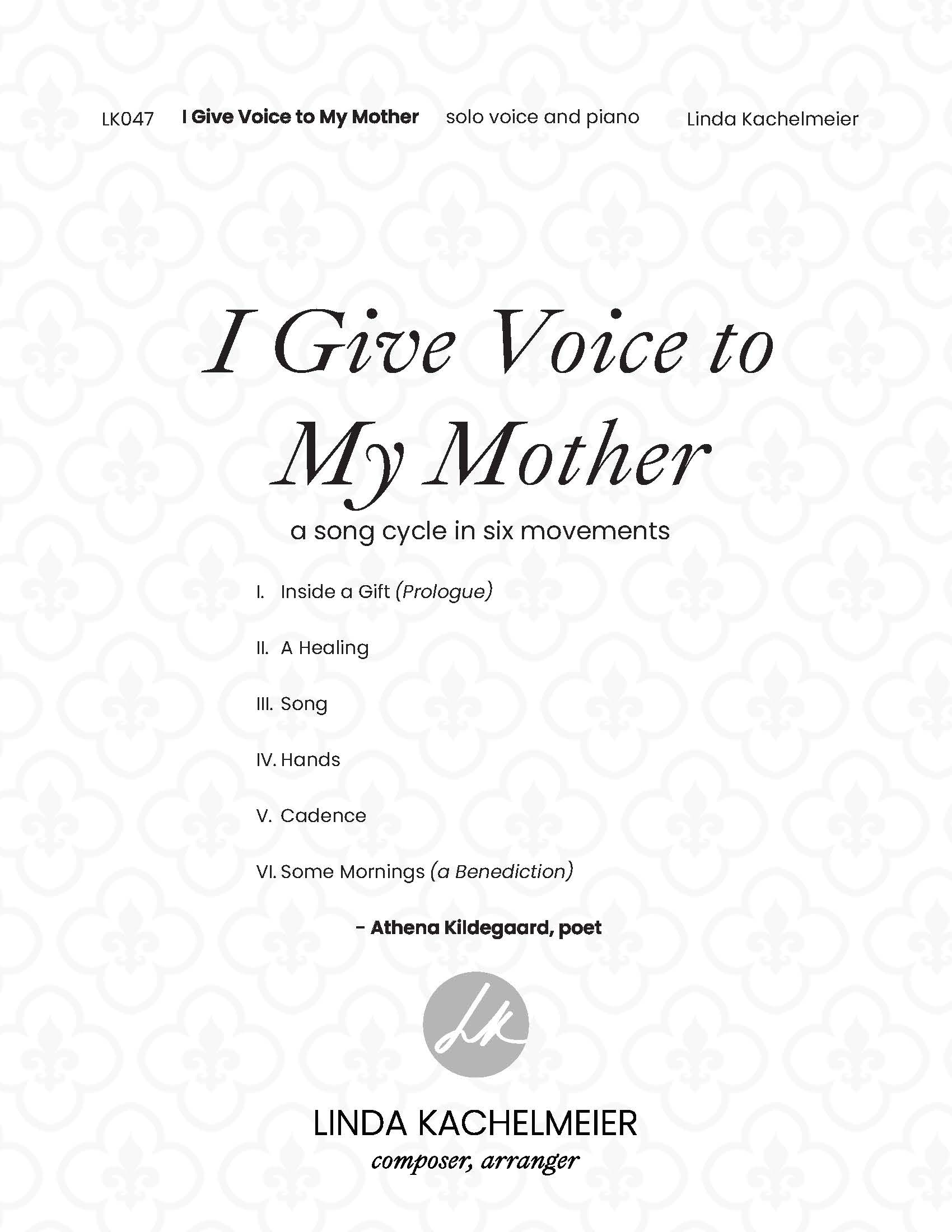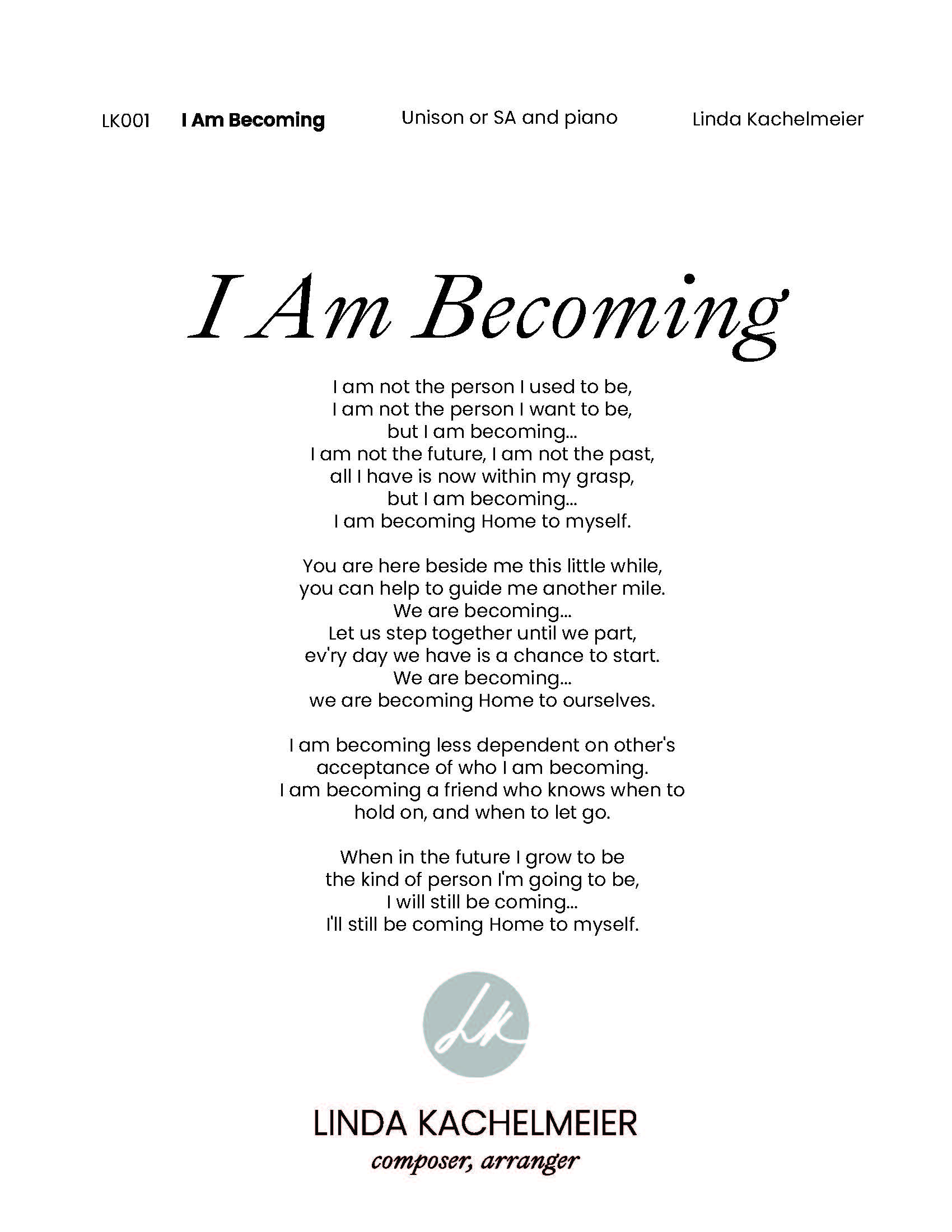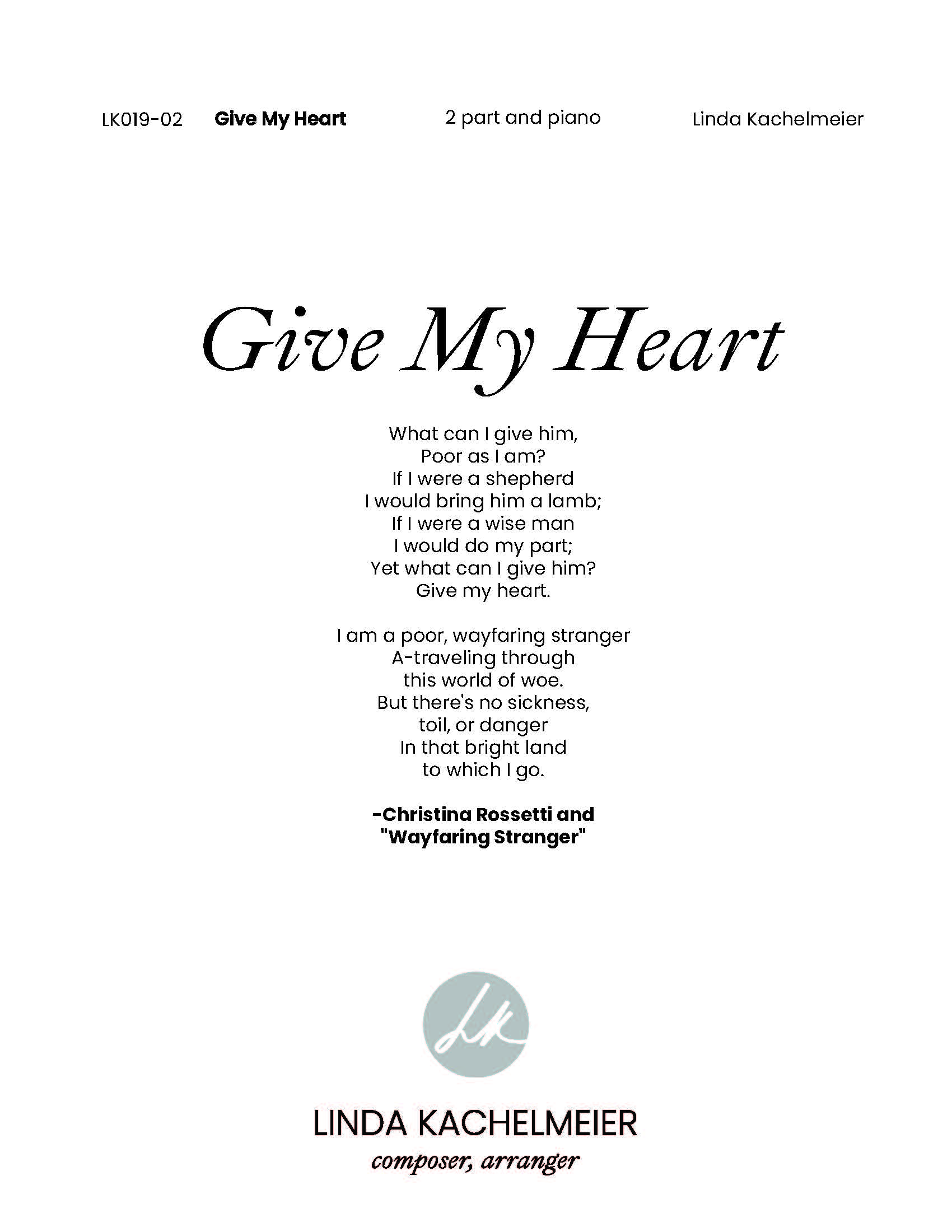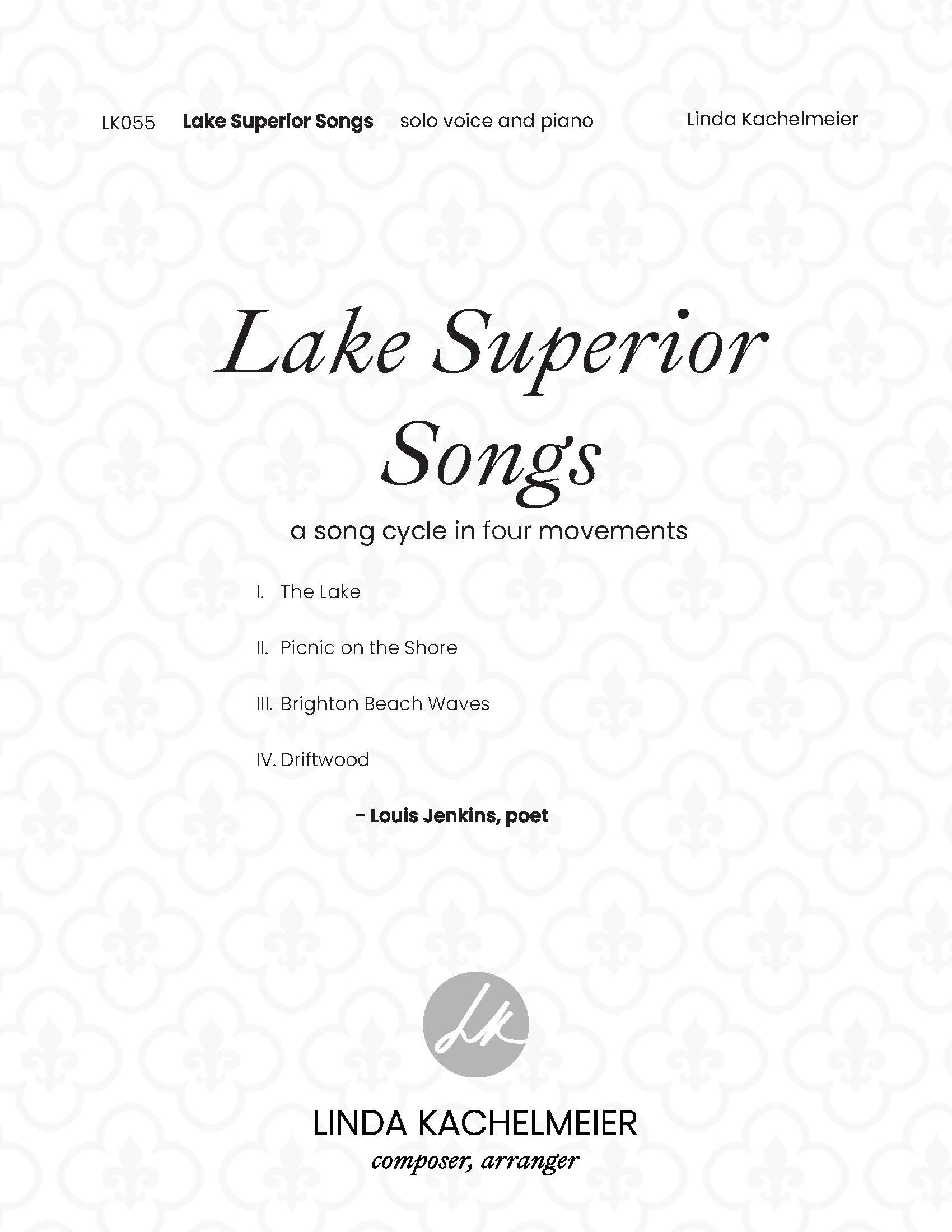I Give Voice to My Mother
$19.00
A song cycle in six movements based on poems by Athena Kildegaard from her book “Course”. “I Give Voice to My Mother” starts and ends with an ode to nature and hearing her mother’s voice. The cycle moves through memories of her mother doing everyday tasks like ironing and dressing, to playing piano, and eventually her death. Featured on my album Harsh Things to Beauty.
Poet/Lyricist: Athena Kildegaard
Available Voicings: For Medium Voice and piano
Commissioned by: Athena Kildegaard through a grant from the Minnesota State Arts Board
Length: 15:30
Maria Jette, soprano and Ann DuHamel, piano
I. Inside a Gift
Inside a gift
is something
unexpected
just as
inside a shell
is the sound
of the unseen
inside
my heart
is your voice
inside a snowflake
an entire storm
inside an oxbow
the river’s direction
inside morning
is evening.
II. A Healing
She pulled water
from a bowl, flicked it
across a shirt, a napkin, an apron––
and rolled each
into damp fists.
I ironed handkerchiefs––
my fathers’, white cotton
without embellishment,
the sort that came in packages of ten
from the five and dime.
Iron, fold, iron, fold
down to perfect squares––
geometry to heal loneliness.
When I no longer needed
a box to stand on
I ironed my father’s dress shirts,
my mother’s blouses––
collars and darts small challenges––
skirts with box pleats,
and the black and white
cutwork tablecloth she labored at
two winters, the linen heaped
in her lap
like a cat or a warming stone.
No, I did not iron that cloth
for it came out of the linen closet
only that once.
III. Song
At any given time she only owned
one sturdy bra. After awhile white rubber threads
escaped the cotton shell, and the shoulder straps
curled in delicate scallops over her shoulder.
She bowed to settle her breasts into the cups.
Her father, a preacher who believed
in the virtue of thrift, allowed one square
of toilet tissue, three, if necessary. His pencils,
(she told us many times–as if, though he died
when she was young, she still could not believe––)
he arranged by size, each sharp as the poison of certainty.
From the alley on winter school-day afternoons
in the cold and hoary dark I watched her
in the haloed light of the stove’s hood.
I could see her contentment
or her anger in how she bent to her task. She’d
woven a nest of silence and dark around herself.
I wanted to enter it a pilgrim but did not know how.
IV. Hand
Sometimes when I play–
an invention, say, or a nocturne––
I catch sight of her hands on the keys.
She pounded veal and threw
a shuttle, played Liszt and Chopin,
painted damask roses, darned socks,
read palms. Mine, finally, I’d begged enough.
My hand in hers: perhaps she agreed
for the heat. My right warming her left.
She stroked the lines and mounts,
folded up the map of my fingers.
When I was born she cried––her hand
couching mine––because I looked like her.
V. Cadence
Pain just there, same
place as a month ago
You wouldn’t obey
the doctors, you said
on the phone, you’d go
home to Scarlatti
and Brahms, to Minnie
purring in your lap,
you’d insist on the long
strains between breaths,
the pizzicati of oxygen.
At the end––my father told
me on the phone––you gave
yourself to your body,
every breath a mark
on time’s surface, a shallow
etching, shallower each one,
as if a needle were rising
from the groove,
the cat purring in your lap,
your hand in my father’s,
even at the end the cat
purring in your warmth,
and your eyes lifted upward
to see what was taking
its course, to see beyond
your body, as if
to witness your own cadence.
V. Some Mornings
I wake and know
you’ve been with me
in the night
while bats move through the air
collecting mosquitoes, and stars
fall and never land.
Your voice––
how can I not
hear it in daylight hours.
It if knocks against
the membrane of day
I am deaf to it.
Linda Kachelmeier’s “I Give Voice to My Mother” was the highlight of the evening, as four singers traded songs that the composer had created from Kildegaard’s poetry. Opening and closing with soft, simple benedictions from festival co-founder Clara Osowski — whose voice I would have loved to have heard more — the cycle was at its most touching on soprano Maria Jette’s interpretation of “A Healing” and Weiss’ chronicle of a mother’s death, “Cadence.”
Rob Hubbard, Star Tribune
You can read the full review here.
| Digital or Hard Copy | Digital Download |
|---|---|
| Voicing | Solo |




